Some days, I wake up dreading the thought of writing. Staring at the blank computer screen, I can’t help thinking the saner option would be to abandon this writing thingamajig and focus on growing a career in Biochemistry or Food Science Technology. After the computer boots, I open MS-Word and once again start writing as if my life depends on it- because let’s face it, it does. On this little, slopy writing journey of mine, I have learned a couple of things that have refined my writing. I won’t bore you with how a writer’s notebook can be a way to immortalize bad ideas, how you should show not tell and how you should write every day. You already know this stuff. Without further ado, here are 13 lessons I have learned from actively trying to improve my writing.
1. Get all the Junk Out

According to Neil Gaiman, to find your voice, you have to write so much you get all the junk and bad ideas out. I felt a certain type of way when I heardthis. The thought that all the manuscripts I was working on could quite possibly be- heaven forbid- junk disturbed me on so many fundamental levels. I couldn’t write for two days after that. But he was right. Most times when I go through my old, completed short stories, I cringe. Sure, some look promising and can be repolished to make a refined story but between the tacky and cumbersome narrative, faulty plot, and overlooked typos, some were- for want of a better word- junk. So how do you get the junk out?
Write.
Write often.
Experiment with different genres, styles, and voices.
Write those stories you have always been afraid to write; who knows, you just might find your voice there.
2. Don’t Be a Hoarder
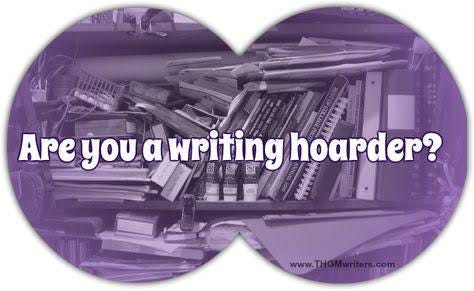
It is easy to become so attached to some lines, paragraphs, and pages of your work that the thought of cleaving them off seems impossible. You put so much work into them. You expressed your thoughts just the right way and even did that witty double entendre thing you have been working on in one of the paragraphs and this makes the thought of parting with that page all the more annoying. With editing, you have to divorce your feelings and tackle the work ruthlessly. Unnecessary adverbs, intensifiers, and long-winded phrases need to go. Your work might be a gem but if it is still rough-hewn and sporting unnecessary fluff, the glow might be lost on a lot of people.
3. Some Stories Are Like Big Boy Pants…

So a while ago I watched a series of talks on writing by Stephen King and something he said struck me.
“I had the idea for under the dome while I was teaching high school in 1973. It was just too big for me and I was too young for it. I wrote about 25 to 26 pages and put it away…”
Most times, it is not the story but you. The idea might be prime stuff and the story quite gripping but (no) thanks to where you are in your writing journey, you might not have the expertise needed to give that idea/story the touch it deserves. I understand this because it has happened to me a couple of times too.
As a fourteen-year-old, I had an idea for this marvelous story. I could hear fireworks each time I wrote parts of it but somehow, I wasn’t rendering the story the way I saw it in my head. A friend of mine saw it, loved it, and showed it to her sister who loved it too. But I knew I wasn’t doing justice to it. Eight years later, I am writing parts of that story again and I am happier with the outcome. Some stories are like big boy pants, you have to grow into them. Some stories are demanding and require a lot more finesse; it doesn’t mean your writing is absolute jabberwocky. It just means you should write some more and get used to making more stories out of blank pages.
4. A for Accountability

Writing-wise, June was a very productive month for me. A friend of mine, suggested we do a writing challenge in June. This challenge made me understand the importance of setting a deadline when setting goals. A goal without a deadline is achieved at infinity. Knowing we had to exchange and review each other’s works at the end of the month necessitated a certain urgency I find it hard to muster. It made me understand that a lot of what we call creativity like Bill Watterson puts it, is just last-minute panic.
“You can’t just turn on creativity like a faucet. You have to be in the right mood. What mood is that? Last-minute panic.”
Bill Watterson
Sure, some days I was not able to write because life happens but I always found ways to make up for it. I started acquiring what I like to call a writing debt; I had a specific number of words I had to write daily and any day I wrote less or didn’t write at all, I acquired a debt. You have to find a way to stay accountable. If you keep waiting for that perfect time when you would have all the time in the world to write, you would never write and thus, are not a writer. Accountability in writing keeps you responsible and dedicated to the pen.
5. Color Your Writing with Synaesthesia
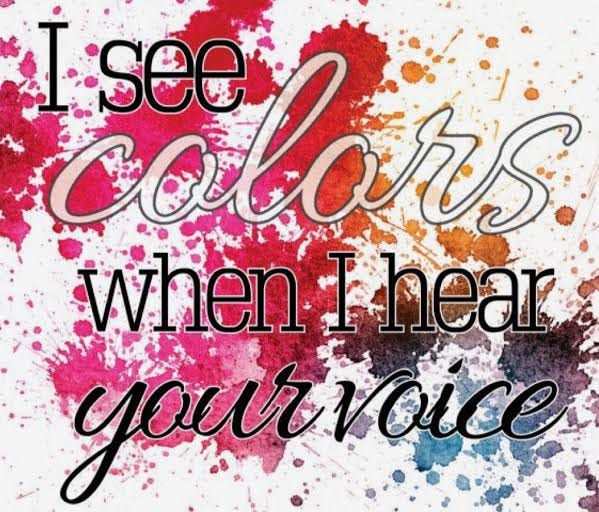
A lot of people think of writing as two dimensional but I feel writing is naturally one dimensional. To make the words come alive, you have to read them, understand them and imagine them- and that takes an awful lot of work. This is why some people prefer the movie to the book. However, there are some tools a writer can employ to make writing more alive and three dimensional and one of those tools is synaesthesia.
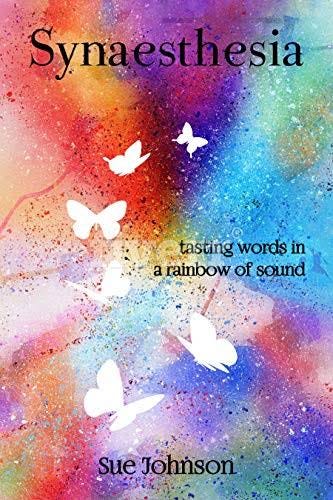
While it is largely a medical condition, in writing, synaesthesia is a type of metaphor; an altered way of perceiving reality where a color, for example, can be used to represent a smell. That’s why we say things like “cool ideas” and “loud colors”. The adjectives “loud” and “image” conjures a certain feeling about the nouns they are defining. Synaesthesia helps you taste words, hear colors, smell touch, and see scents.
Take this excerpt for instance:
“Jamie’s fingers licked through the soft honey of her hair, his palms drinking in the smooth almond of her throat, before his mouth feasted, with delicate greed on strawberry lips…”
This is synaesthesia at its finest. Here, touch becomes gustatory. The imagery of “licking through hair,” “drinking in the smoothness of her throat” and “feasting on strawberry lips” is so vivid, it doesn’t feel like you are reading the words.
6. The Best Writers are Readers
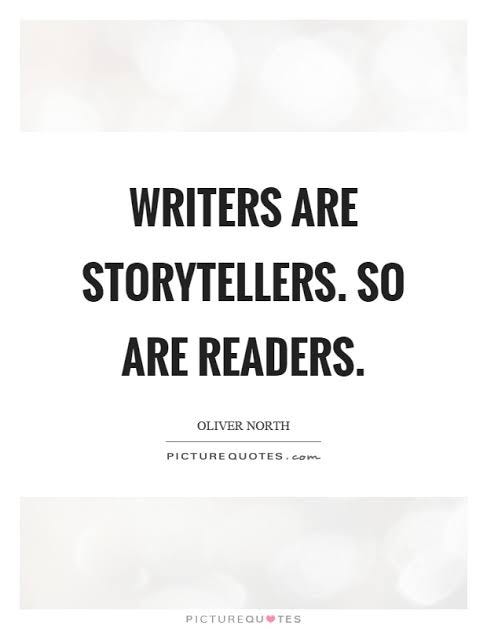
I’m sorry there is no way around it. Voracious and intentional readers make the best writers. When you read, you are studying the works of others whose writing has been refined by the fires of time, experience, and continuous effort. With constant reading, writing and inspiration come easier. It is also important to note that to be a better writer, you should approach reading meticulously. You should read, not as a reader, but as a writer.
Be eagle-eyed in spotting errors
Note the tone and the way the author/prose persona expresses themselves, their thoughts, wants and desires.
Notice how each character has a distinct manner of expression and thought that separates them from others
Observe how the writer makes use of metaphors and extends them and how this technique colors the work.
As a writer, you are reading not only for enjoyment but also to learn. So it is not really about how many books you read but more about how you read them.
7. Ambiance is King
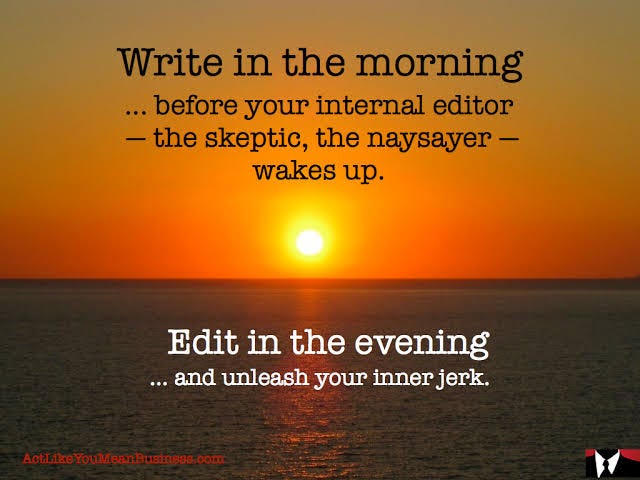
Two things I prioritize when writing are silence and ordered noise (music, instrumentals, and all that jazz). This is one of the reasons why I write best at night. I find it very calming and therapeutic. At that time, my body might feel a bit drowsy and lax but my mind would be firing like the engine of a convertible. The ideas flow unperturbed and I find it easier to become my characters and follow each of their unique journeys. Studies also show that creativity seems to peak when you are tired. Recently, thanks to the epileptic power supply at night and how my laptop battery seems to die faster than a black guy in a horror movie, I decided to try out a method called “The morning pages” which is a reverse of nocturnal writing.
With morning pages, writing is the first thing you do when you wake up. You go to the computer, all bleary-eyed and gummy mouthed, sit your ass down and write for at least thirty minutes. This works wonders for me as well. I once read that the reason why writing late at night or first thing in the morning sits well with a lot of writers is probably due to the proximity of those times to dreams. Your body is in a pre-slumber or post-slumber state and that dreamlike state makes it easier to ferret out ideas and express yourself elegantly. However, I believe there is no method to this madness called writing.
Some people write better at night or early in the morning.
Others write better when the sun is high in the sky and beating everyone like SARS*
Some people write better in solitude with nothing but the sounds of nature and soft Celtic music
Others create their best works in crowded restaurants or listening to hardcore rock.
What matters is you find your activity cycle and recreate ambiances that encourage creativity for you.
8. Much Ado About Inspiration
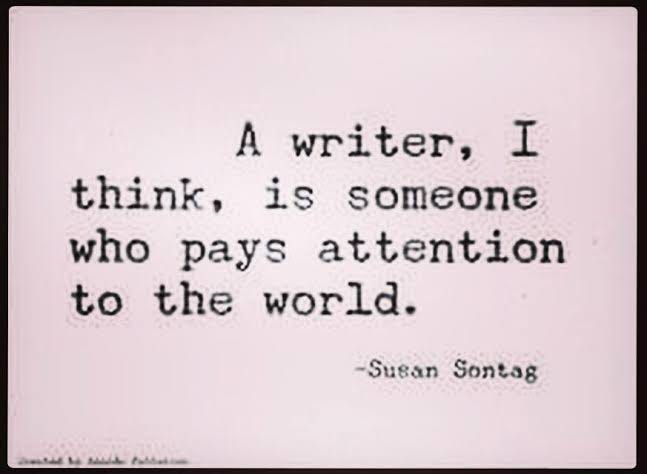
I used to think movies were a waste of time which is weird because back in secondary school I used to have movie bingeathons. Earlier this year, I discovered that movies can plant some awesome ideas in your mind. Now, I schedule at least three movies into my monthly to-do list. As a writer, you have to be open to inspiration no matter how unorthodox the source. Asides movies, inspiration can come from music, dreams, real life, other books, and even pictures. The third part of a story I am working on was inspired by the song “Beautiful People” by Chike. The best stories strike like lightning. You have to be attentive to the quiet voice of inspiration because lightning, unfortunately, never strikes the same place twice.
9. The Research Vortex

I have a love-hate relationship with research. I hate how much time it consumes and how you could read multiple internet pages and books, watch multiple videos, and still not have the information you need. On the flip side, I love learning and I love how research helps me learn more about things I ordinarily wouldn’t know about. I remember one time I was working on a gig about introspection illusion and ended up learning about Freud’s six stages of development and the Pygmalion effect.

There exactly lies the problem of research. It is a black hole; it can suck you in and many Pinterest images and bookmarks later, you cannot remember what it was you were searching for in the first place. To avoid spiraling down the research vortex, adopt the grab-and-go method: know what you are looking for, search for it, get it, and hightail your way outta there. Don’t stop to check recommendations or alternate links; you have what you need, leave.
10. Fall in Love With Blank Pages
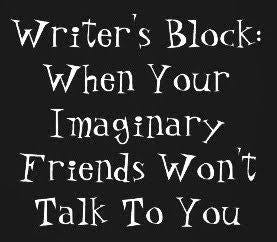
Every writer knows how annoying blank pages are. You are staring at the computer screen. The cursor blinks accusingly. This is the fifth day and you still haven’t been able to write a word and for the umpteenth time that week, you are wondering if you still got it. You have to learn to take the highs with the lows, love. Some days you will go ham and write 5000 words in one sitting, other days you will only be able to write two decent lines. It is what it is. Deal with it.
11. Writing Rituals and Traditions

I believe writing rituals set the mood for writing and make the entire process easier and less stressful. For Paulo Coelho, author of the bestseller, “The Alchemist”, a feather forms the entire span of his writing tradition. It kind of dates back to when Coelho was 40 and wanted to so badly to be a writer even though he hadn’t written any books. So he went on this 56-day pilgrimage to Saint John’s Path in Santiago, Spain, and said, “Oh God, my dream is to be a writer but I am always postponing it.”
He then said to himself, “If I see a white feather today, that is a sign that God is giving me that I have to write a new book.”
Coelho gets to work on a book once every other year. When the writing year approaches, he has to see the white feather in January for him to continue. He gets a lot of white feathers in the mail but when January comes, he has to find the white feather. Your writing tradition or ritual doesn’t have to be as elaborate as Coelho’s, it just has to work for you and make sense to you.
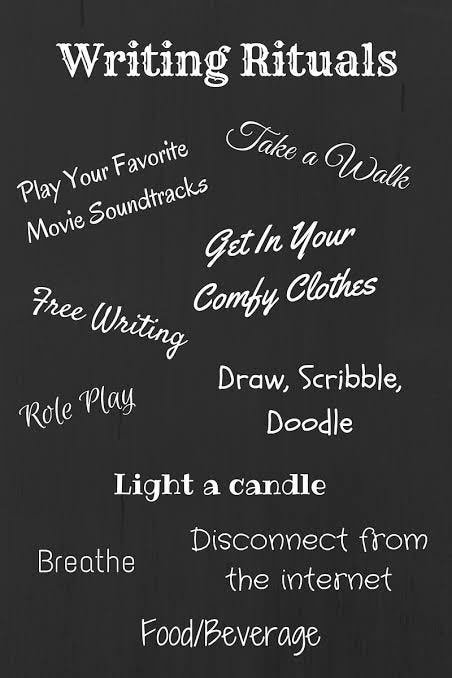
For me, It is praying, meditating, singing, or dancing before I write. It helps to put me in the writing mood. I also have a technique I mostly use when I am writing difficult scenes. I play an instrumental I feel suits the scene I am writing and imagine my story is a movie and the instrumental, the soundtrack. This makes it easier for me to see the story and its scenes in my mind’s eye, thus, making the writing process a breeze. So find what works for you and implement it. If it stops working after a while, find something else.
12. Writing is Re-writing

As a child and teenager, I used to romanticize writing. I would imagine myself sitting at a desk in front of a half-burned candle. Under the benevolent glow of candlelight, I would empty my thoughts on the pristine paper. My muse would stand beside me, whispering as the ideas gracefully flow out of my pen and onto paper.
No, my darling, that’s not how it works.
These days, I frantically type on my computer in a race against the bipolar power supply while simultaneously trying to eat lunch. Occasionally, I add texting to the mix. What can I say? I’m a millennial! We believe in the imaginary superpower called multitasking.

Jokes aside, the point I am trying to make is a lot of times, we believe we should get it right with the first draft. But that’s not the case. Ideas don’t come fully formed. Re-writing is the pixie dust that gives your writing wings.
Most of my first drafts look crazy, disjointed, and pretty unreadable. There are usually a lot of pockets I will get around to filling later. By the second draft, a few talented mortals might be able to squint some meaning out of the gooey mess. By the third draft, it becomes largely readable.
When I was younger, I used to get frustrated about this. I would watch movies and see how the ideas seem to come immediately the writer sat behind their typewriter. I would get so mad at myself for making meaning only in the third draft. The truth is, how well you re-write and edit can make or mar your writing. It doesn’t make you less of a writer if you have to have many drafts to get it right.
13. We Are All Just Winging It

To quote Virginia K. Newman, “No one writes so well that (s)he cannot write better…”
No one has this writing thing completely figured out; they are all just making it up as they go. The most important thing is to write often, write from the heart, and have fun while doing it.
Glossary
SARS*- Special Anti-Robbery Squad; a dreaded unit of the Nigerian Police Force.
Originally published on Medium
Like what you read? Check out Dear (Nigerian) Writer, You Will Suffer and Is Love Calibrated by Its Unfortunateness




Comments 2